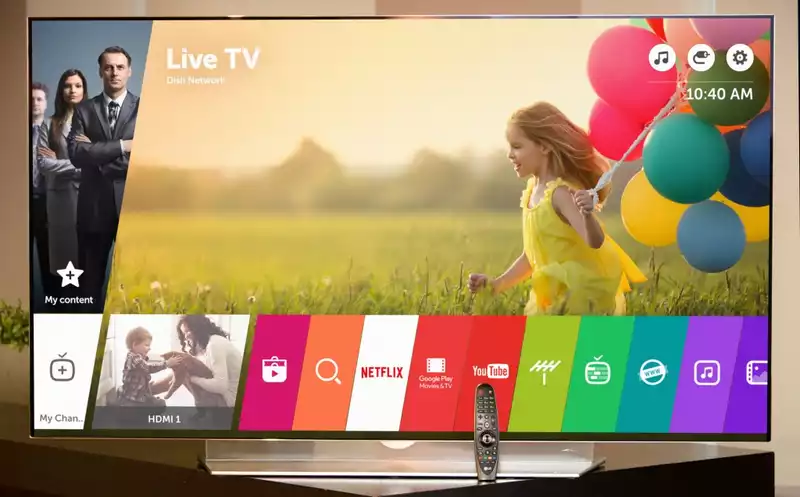LG's webOS will be on more TVs than ever before this year, and LG has announced that it will license its webOS platform and app ecosystem to a number of brand partners. [According to a company press release, LG will open its proprietary smart TV operating system, webOS, to other brands. The move puts LG in competition with Google and Roku as a platform for third-party manufacturers, especially for budget smart TVs.
In the announcement, Park Hyoung-sei, president of LG Home Entertainment Company, said, "By welcoming other manufacturers to join the webOS TV ecosystem, we are enabling many new TV owners to experience the same great UX and features available on LG TVs. We are starting down a new path that will allow many new TV owners to experience the same great UX and features available on LG TVs. We look forward to bringing these new customers into the wonderful world of webOS TV."
As we previously saw in our review of the LG CX OLED, we examined webOS on LG TV and praised LG for having "perhaps the best proprietary program on the market." We especially liked the on-screen cursor for motion control, the flexible tab system and the easy-to-understand graphics; you can learn more about LG's smart TV software in our guide to LG TV settings and features.
Unlike Samsung Tizen and Vizio SmartCast, which are only available on TVs from their respective manufacturers, LG plans to partner with manufacturers like RCA, Polaroid, and Konka.
According to LG's announcement, these partners will be able to use the webOS interface along with what LG calls "a rich pool of features, including voice search and control, integrated AI algorithms, and easy connectivity."
LG currently offers Google Assistant or Amazon Alexa, and this dual-service capability may become more common as webOS comes to other brands of TVs. This move also paves the way for third-party TV brands to adopt LG's Magic Motion remote control.The shift to licensing will position LG to compete with Google and Roku's brand-agnostic streaming platforms. Roku, in particular, has emerged as a major smart TV platform thanks to its prevalence in the budget TV space, led by brands like TCL.
There are several reasons for LG to make this move, the first of which is financial: third-party TV brands that want to use webOS will pay LG a software licensing fee, which will not dilute the more premium image that the LG OLED s brand recognition in the TV category.
The webOS platform is also an LG-owned pipeline for advertising and viewer analytics. And bringing more TVs with LG software to market would probably be a lucrative move for the company.
But having webOS on more TVs is also good for TV shoppers, as it increases the likelihood of more apps and services being offered through LG's content store; LG currently offers Netflix, YouTube, Amazon Prime Video, and sports streaming service DAZN, but lacks paid apps like HBO Max and Criterion Channel or free streaming services like Tubi TV. As more people use webOS TV, support for new apps will likely increase.










Comments